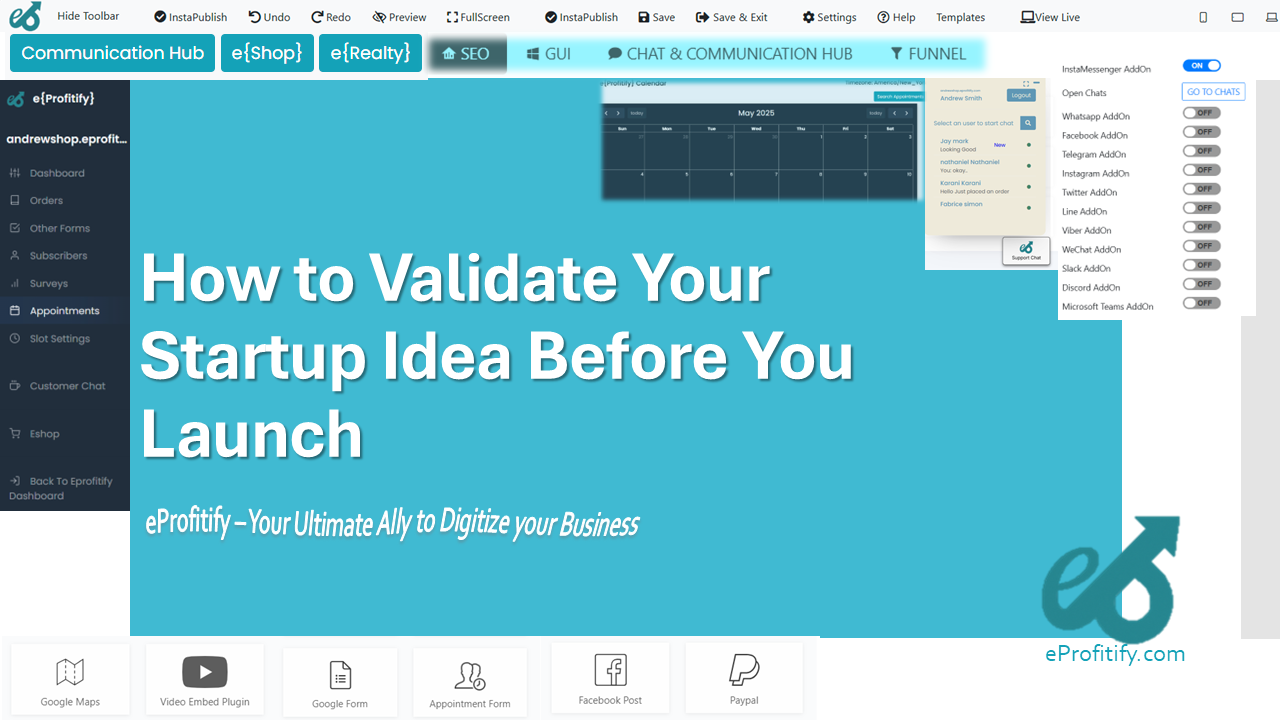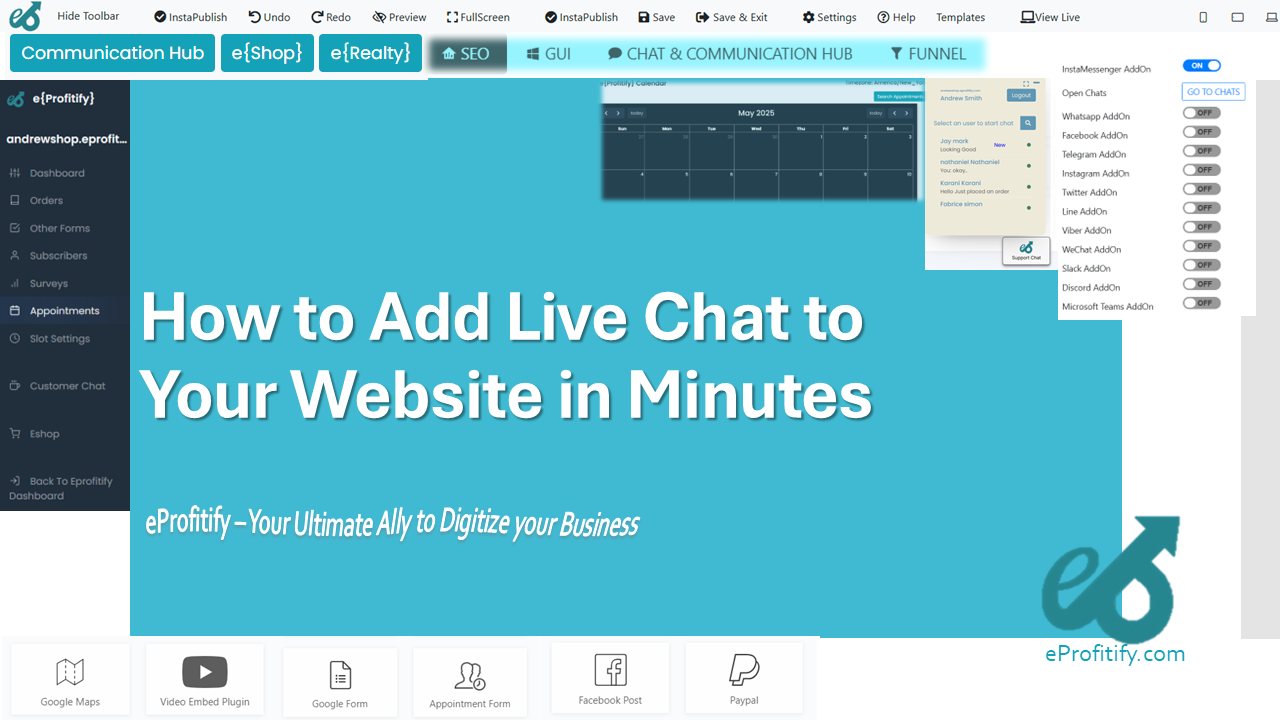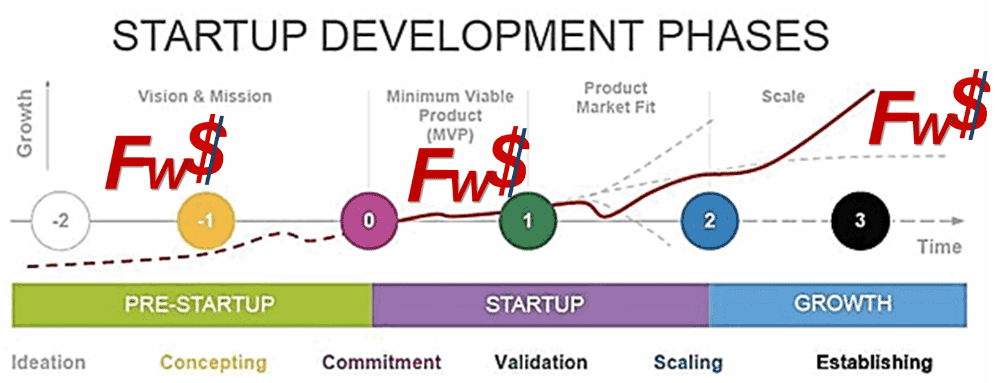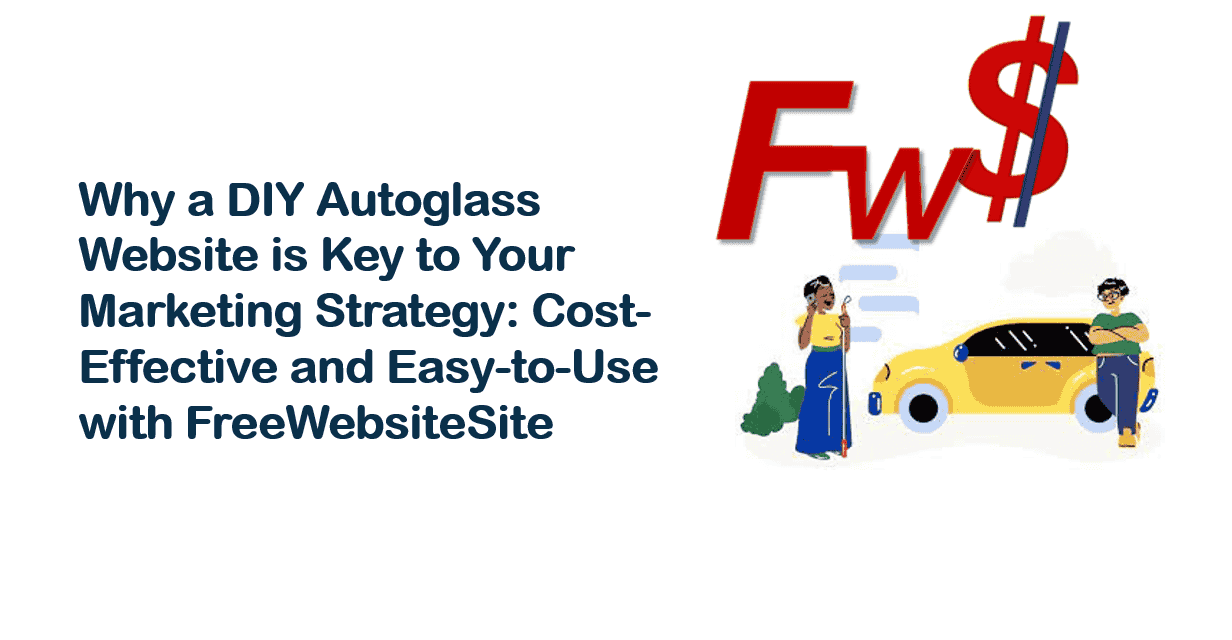How to Validate Your Startup Idea Before You Launch

How to Validate Your Startup Idea Before You Launch: A Step-by-Step Guide
Launching a startup is exhilarating, but the harsh reality is that 42% of startups fail due to a lack of market need (CB Insights). To avoid becoming a statistic, validating your idea before investing time and money is critical. This guide will walk you through actionable steps to test your concept, supported by data, and highlight how tools like eProfitify—a leading website publishing and management platform—can streamline the process with features like instant messaging, appointment scheduling, eCommerce, CRM, and more.
1. Conduct Market Research
Start by understanding your target audience and industry. Use tools like Google Trends, Statista, or industry reports to answer:
- Is there demand for your product/service?
- Who are your competitors?
- What gaps can your startup fill?
Stat to note: 35% of startups fail because competitors outpace them (Failory).
How eProfitify helps: Use its built-in analytics to track market trends and competitor activity. Its CRM tools let you segment audiences and gather insights on customer behavior.
2. Build a Minimum Viable Product (MVP)
An MVP is a simplified version of your product that solves a core problem. Launch it to a small group to gather feedback.
Key questions:
- Do users find it valuable?
- What features are missing?
Stat to note: Startups that test MVPs reduce their risk of failure by 33% (Harvard Business Review).
How eProfitify helps: Use its eCommerce tools to create a prototype storefront or leverage its appointment management system to simulate service-based offerings.
3. Run Customer Interviews and Surveys
Engage directly with your target audience. Ask open-ended questions to uncover pain points and expectations.
Stat to mention: 72% of successful startups credit customer feedback as pivotal to their growth (Startup Genome).
How eProfitify helps: Use its instant messaging feature to conduct quick interviews or deploy surveys via integrated forms. The CRM automatically logs responses for analysis.
4. Analyze Pre-Sales or Waitlists
Gauge interest by offering early-bird discounts or waitlist sign-ups. If people commit financially, it’s a strong validation signal.
Stat to note: Startups with pre-launch waitlists see 30% higher conversion rates post-launch (Kickstarter Data).
How eProfitify helps: Use its eCommerce integrations to set up pre-sale pages or manage waitlists through its landing page builder.
5. Test Paid Ads and Landing Pages
Run low-budget ads (e.g., Google Ads, Facebook) to measure click-through rates (CTR) and conversions. A high CTR indicates interest.
Stat to note: Startups that A/B test landing pages improve conversions by 49% (HubSpot).
How eProfitify helps: Design high-converting landing pages with its drag-and-drop builder and track performance via built-in analytics.
6. Leverage Social Media Validation
Share your idea on platforms like LinkedIn, Reddit, or niche forums. Monitor engagement and comments for organic interest.
Stat to note: 54% of consumers discover new brands via social media (GlobalWebIndex).
How eProfitify helps: Schedule posts, manage engagement, and track social metrics using its unified dashboard.
7. Partner with Influencers or Micro-Influencers
Collaborate with niche influencers to promote your concept. Their audience’s response can validate demand.
Stat to note: 49% of consumers rely on influencer recommendations (Oberlo).
How eProfitify helps: Use its CRM to identify and manage influencer partnerships and track campaign ROI.
8. Analyze Financial Feasibility
Estimate costs, pricing, and profitability. Use tools like Excel or financial modeling software to stress-test scenarios.
Stat to note: 29% of startups fail due to running out of cash (CB Insights).
How eProfitify helps: Integrate its eCommerce and CRM data to forecast sales, manage invoices, and track expenses.
9. Iterate Based on Feedback
Refine your product, messaging, or pricing based on validation data. Avoid clinging to your original idea if the market rejects it.
Stat to note: Startups that pivot once raise 2.5x more funding (Startup Genome).
How eProfitify helps: Use its project management tools to assign tasks, track iterations, and communicate updates via team chat.
10. Final Pre-Launch Checklist
- Secure a domain and branding assets.
- Set up legal/financial systems.
- Plan a soft launch for final testing.
How eProfitify helps: Use its all-in-one platform to host your website, manage customer interactions, and automate workflows.
Why eProfitify Stands Out
While validating your idea, eProfitify simplifies execution with:
- Instant messaging for real-time customer engagement.
- Appointment management to streamline bookings.
- eCommerce tools for seamless product launches.
- CRM integration to nurture leads.
- Analytics dashboards to track KPIs.
By combining these features, startups reduce friction at every stage—from idea validation to scaling.
Conclusion
Validating your startup idea isn’t optional—it’s survival. By following these steps and leveraging tools like eProfitify, you’ll minimize risks, refine your offering, and position your startup for success. Remember: The goal isn’t to be perfect on day one, but to learn, adapt, and grow with your market’s needs.
Final Stat: Startups that validate their ideas before launch are 5x more likely to secure funding (Forbes).
Ready to test your concept? Build, measure, learn—and let platforms like eProfitify handle the heavy lifting.








